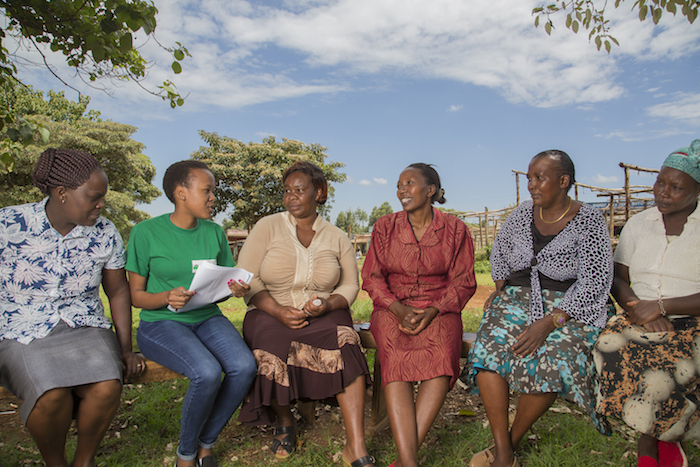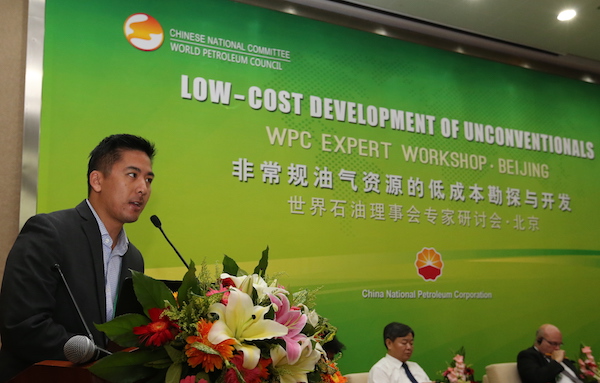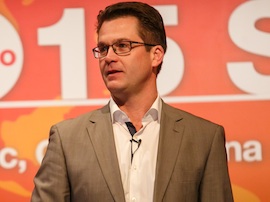This primer provides a comprehensive but non-technical overview of the distinct health information systems (HIS) that all together support health care delivery in low-resource settings. It opens with a historical account and landscape assessment and describes the urgent need to build a lean rigorous HIS that integrates these different components. Subsequent sections describe the individual systems that: i) track individual patient and health care provider information; ii) directly document care delivery; iii) provide public and population health data; iv) support facilities’ and community health workers’ administrative and financial functions; and v) coordinate logistics and health commodities supply chains. A separate section describes imported data, including “master data” and manufactured (e.g., “meta”) data. The primer closes with recommendations for principled HIS stewardship.
This article traces the development of management education in Central and Eastern Europe over the past 30 years and provide recommendations for the future of management education in this part of the world. The authors, Danica Purg and Alenka Braček Lalić of IEDC-Bled School of Management, identify emerging business issues in Central and Eastern Europe and the resulting opportunities for institutions in the region to respond to these challenges with appropriate management and leadership development.
This article is part of the 25 Years of Market-Based Solutions article series released in honor of the William Davidson Institute’s 25th anniversary. Since its founding in 1992, the Education Initiative at the William Davidson Institute has helped management education institutions around the world develop their capacity. We look forward to continuing this work — and sharing key learnings — over the coming decades.

A Juhudi Kilimo representative speaks with smallholder farmers. The organization is the subject of one of the case writing entries for WDI’s case writing competition. (Image credit: Juhudi Kilimo)
WDI Publishing received 50 entries from 11 countries for its case writing competition, which is being held to commemorate WDI’s 25th anniversary and its years of work developing private sector solutions in low- and middle-income countries. Completed case studies, and accompanying teaching notes, must be submitted by Dec. 8 and the winners will be announced March 15, 2018.
Of the 50 entries, 41 are faculty and nine are student authors. Three authors entered more than one case, and 12 entries came from faculty members in the Philippines who were trained in case writing by WDI as part of its work on the STRIDE project.
Eleven universities in India are represented in the competition, nine from the Philippines and eight from the United States, including four from the University of Michigan’s Ross School of Business. Other countries represented in the competition are Australia, Canada, Kenya, Russia, Singapore, Switzerland, Ukraine and the United Kingdom.
Case study topics must describe a dilemma or challenge faced by a company or organization related to creating, implementing, evaluating, and/or disseminating market-based solutions in developing countries.
The proposed case studies are set in 17 different countries, including Angola, China, Estonia, Greece, Honduras, Kyrgyzstan, Mexico and the United Arab Emirates.
Some of the organizations and companies featured in the proposed cases include Just Us! Coffee Roasters Co-op, Solar Ear, Tallinna Kaubamaja, Digital Empowerment Foundation, SafeMotos, Juhudi Kilimo and SMART Diaphragm.
“I’m very excited and pleased by the global interest in our competition as evidenced by the demographics of our entrants,” said Sandy Draheim, manager of WDI Publishing. “And the relevance of the proposed case study topics and featured organizations align very well with WDI’s mission and focus. We are truly looking forward to the opportunity to publish and disseminate teaching cases about market-based solutions in developing countries.”
The competition, organized and administered by WDI Publishing was open to individual students or student teams, as long as they entered in collaboration with a faculty member from a degree-granting university or college. Faculty or faculty teams also could enter as long as they were currently teaching at a degree granting university or college.
The first place team or individual will win $3,500. The second place team or individual will win $2,500, and $1,000 will be awarded for third place. Additionally, each winning case will be professionally published by WDI Publishing.
Judges for the competition are: Kim Bettcher, senior knowledge manager at the Center for International Private Enterprise; John Branch, clinical assistant professor of business administration at the University of Michigan’s Ross School of Business; Gautam Kaul, professor of finance and the Fred M. Taylor Professor of Business Administration at Michigan Ross; and, Jordan Siegel, associate professor of corporate strategy at Michigan Ross.
WDI Publishing has organized and administered past case writing competitions. From 2011-2015, NextBillion, an affiliate of WDI, and NextBillion partner Citi Foundation sponsored competitions for the best-written case studies about business strategies aimed at alleviating poverty – especially at the economic base of the pyramid.
Rob Liou’s goal after he received his MBA from the University of Michigan’s Ross School of Business in 2011 was to work in China’s energy sector. Liou was an auditor at a large accounting firm in San Francisco before graduate school but didn’t have a passion for it nor was he interested in the dominant industries in the Bay Area such as tech, biotech and retail.
His career path would first take him to one of the poorest regions in China – Guizhou – where he’d find himself steeped in the tea trade with smallholder farmers.
While researching Ross, Liou learned about WDI and its summer internships, visited the Institute during a campus tour, and met members of the business school’s Emerging Markets Club, some of whom were past WDI interns.
“Being involved with WDI is something I definitely wrote about in my application to U-M,” Liou said.
When he started thinking about a summer internship after his first year of MBA studies, Liou approached WDI with an idea for a project. Most of WDI’s summer internship projects are developed by the Institute along with its partners. But WDI also allows graduate students to formulate their own internship projects based on their educational, personal, and career interests as long as it falls within one of the Institute’s research focus areas. For these “student-initiated” internships, the student contacts the organization and works with senior managers there to define the scope of work for a 12-week project. The student then presents the proposal to WDI for potential funding.
To see if he would like working in China, Liou developed a project to help organic tea farmers in in Guizhou to create a marketing strategy to export their tea to more lucrative foreign markets, such as the U.S. Some of the farmers were part of a company while others worked independently and sold their tea directly to a company. One of Liou’s goal was to get the farmers and companies form larger co-operatives. (Read the blog posts Liou wrote while on his internship here.)
“Despite spending all of my life in the United States, my goal since visiting China in college has been to move there,” Liou said. “The internship with WDI was very instrumental as I had no significant overseas work experience prior to Ross, and my Chinese language skills were weak. I’m very thankful that WDI allowed me to design the internship and provide this opportunity.”

Rob Liou in a recent photo.
Liou worked with two graduate students and a professor from Guizhou University. The foursome traveled through the province extensively to visit farmers and sites where the tea was made. While there, Liou met a local husband and wife who provided funding to help the farmers market their tea.
“They weren’t really doing this for money, they just really wanted to make life better for the local farmers,” he said. “We wanted to help him because he and his wife were such sincere, caring, and passionate people. I feel like a lot of the best people I’ve met in China tend to typify those traits – very sincere, hard-working, and not necessarily after money.
“It made me want to come back after graduation, and it’s really what’s kept me here for the past six years.”
Liou’s hard work paid off. Two years after his internship, he was contacted by a U.S.-based tea importer who had seen an article about Liou’s internship on the WDI website and was interested in buying tea from the farmers. Liou put him in touch with the people running the tea company in Guizhou.
After Liou graduated from Ross, he went to work at China’s second-largest oilfield for a former state-owned enterprise. He began making contacts and learning about the industry. Later, he collaborated with some Houston-based Ross alumni who had started PacWest Consulting Partners, which provided research and consulting services with a focus on the global unconventional oil and gas industry. China is home to some of the world’s largest reserves of untapped shale natural gas.
“Using my network and their brains, we were able to scale up our presence here in Beijing quickly,” Liou said.
The firm was acquired in late 2014 by IHS, and Liou joined the company, working with local and global clients engaged in exploration and production activities.
Liou said the internship taught him a lot, lessons that stay with him still and provide daily inspiration. He recalled during his internship accompanying a friend who was studying energy trends in Guiyang, the province’s capital city, for her doctorate at Colorado State University. To help villagers accept Liou’s friend and make her research interviews easier, the two agreed to perform in a local singing festival. Dressed in native garb and wearing makeup, Liou and his friend sang a traditional Chinese song called “Jasmine Flower” in front of thousands of locals.
“It was hilarious, but it’s something I always reflect on because it taught me the importance of localizing in order to develop ‘guanxi,’ or relationships, and not being afraid to get myself out there and try new things,” he said.
As Liou continues to advance his career in China, he said he won’t forget what he learned while a WDI summer intern working overseas for the first time.
“How important it is to be humble,” he said. “To be passionate about what I do, and also to have good local language ability, people skills, and cultural adaptability in order to be effective in a foreign land.”
Note: This is one in an ongoing series of articles profiling past WDI interns and Multidisciplinary Action Project (MAP) team members and their career paths. Additional profiles in the series may be found here.
Note: This is one in an ongoing series of articles profiling past WDI interns and Multidisciplinary Action Project (MAP) team members and their career paths. Additional profiles in the series may be found here.
Lee Boyd can’t remember specifically how he heard about WDI as a first-year MBA student in 1993 at Michigan’s Business School (as it was known then). But he vividly recalled what he learned about the Institute that day and what it could offer MBA students like him.

“I saw (WDI) as a great opportunity to get work experience in an emerging economy and, very hopefully, China,” he said recently.
Boyd, who today is the Shanghai-based vice president of Greater China commercial operations for Bio-Rad Laboratories, had studied in Japan for a year as an undergrad. But he also had a growing interest in working in China as an MBA student.
Boyd got his opportunity at WDI in 1994 as part of a three-person student intern team on assignment for AT&T in China.
“That was the summer of ’94 and the China boom was just getting started,” he said. “One can never predict the future, but you could foresee that the country, economy, and markets had great growth potential in front of them.”
Boyd, another MBA student, and a Chinese Studies PhD candidate examined the effectiveness of how AT&T received and processed customer sales and found significant, potential improvements.
“Also, management development and talent retention were growing issues – and remain hot issues today. We suggested changes to the evaluation, review and training practices” at AT&T, Boyd said.
That early experience in China led to what has been a long and successful marketing career for Boyd, mainly in Asia. He has spent 10 years working in Japan and seven (and counting) in China.
The WDI internship “added a perspective and interest that I would keep and put to work professionally later.” He said it was probably a blessing that his internship was not followed by a full-time job after graduation. Instead, he viewed the internship as a “career building block that I had to add to my experiences and skills to pursue what I wanted.”
The internship also taught him how to “deliver results as a team. Two months living and working together builds your understanding of the importance of understanding the common mission, roles and responsibilities, communication, and sometimes conflict resolution,” he said.
It was exactly what he was hoping for when chose to attend U-M for his MBA studies and WDI for its unique international experiences.
My internship “gave me work experience and heightened my interest in China, leading me to move there and continue my career in China,” he said. “It gave me work experience in China during a period in my career when that opportunity was not easy to find. That background and learnings have definitely been a positive (for my career).”
Two members of WDI’s Healthcare Research Initiative just attended the world’s largest pharmaceutical event in Madrid as part of the Institute’s continuing work to better understand the Active Pharmaceutical Ingredient (API) markets for malaria, tuberculosis, and HIV/AIDS medicines.

Lisa Smith, program manager for healthcare market dynamics, and pharmaceutical consultant Yuchen Lu attended the CPhI event in Spain Oct. 13-15, which attracted thousands of industry representatives. Smith and Lu met with pharmaceutical manufacturers to share with them the market assessment work WDI has done in partnership with Howard University.
WDI’s work on the three-year API Market Dynamics Information Services (API MDIS) project is in its second year. WDI is supporting UNITAID, a global health initiative, to help characterize and identify key constraints in the API markets for malaria, HIV/AIDS and tuberculosis medicines. This work informs further coordination amongst global health stakeholders including targeted investments to improve access to these products.
So far, WDI has conducted more than 70 interviews in person at manufacturing sites and pharmaceutical conventions like CPhI to gather information on the API markets. Smith, Lu and Stacy Finkbeiner, a WDI specialist in access to medicines, spent two months in China and India this summer updating information obtained during the first year of the project.
In the first phase of the API MDIS project, WDI and Howard University developed a standardized approach for collecting market information that is comparable across different therapeutic areas and can be communicated to stakeholders in an easy-to-understand way.
Findings from this first phase of the project highlighted the main shortcomings in each of the priority API markets. Preliminary recommendations were made for potential improvements in specific markets. In the second year of the project further verification of information is being done in concert with stakeholder engagement to move the conversation closer to action.
WDI will probe deeper into market shortcomings and the industrial economics of each API market. Engagements with manufacturing companies will continue to be a key focus of team efforts. Public reports that highlight findings on each priority API market will be made available this fall, which will facilitate conversations with stakeholders as well as manufacturers.
Concordia Welfare and Education Foundation (CWEF) is a Hong Kong-based, nonprofit organization dedicated to poverty alleviation through education and service. CWEF coordinates and directs projects in three main areas: Traditional education, public health and sanitation, and rural development. Student intern Claire Barco refined the foundation’s content management system (CMS) and also created training materials for the new system. Additionally, Barco helped develop a fundraising strategy using the new CMS.
GE Healthcare’s Maternal Infant Care has been a pioneer in advancing neonatal care products worldwide including its Infant Warmer, phototherapy units, and incubators. GE Healthcare’s Rural Health Initiative has taken the company into new, underserved markets. Ross and SNRE dual degree studentt intern Ben Chen helped GE Healthcare’s Maternal Infant Care business understand new markets, and define a strategy to viably serve these markets in order to positively affect infant mortality in Base of the Pyramid markets.